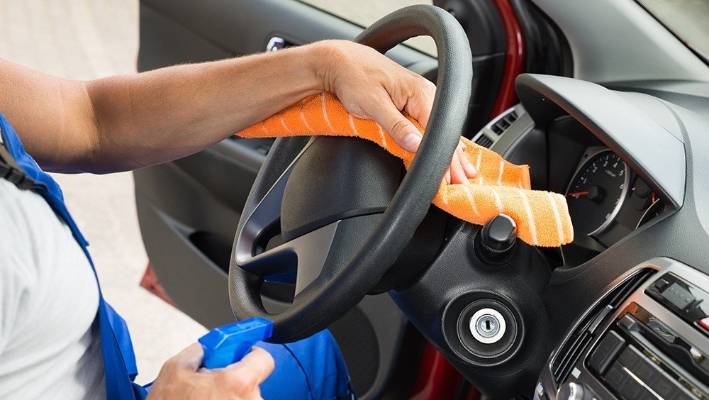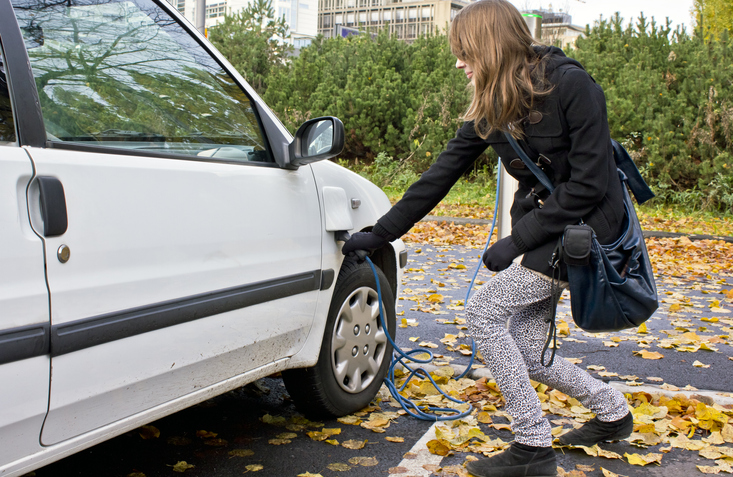Keeping your car Virus-free

Car wash detergents, glass cleaners and silicon sprays aren't formulated to combat viruses. Indeed, you'd be hard-pressed to find any product in your regular car-cleaning kit that is.
In which case, if you're really dedicated to keeping the bad bug at bay, you'll likely be relying mainly on household cleaners, which might prove to be far harsher products than those you usually apply.
Before you use any product, check the instructions to ensure its okay for use on plastics, upholstery or leather. It's a good idea to test on an unseen patch to double-check it won't cause any damage. Beware ammonia-based cleaning products; these can be ruinous to vinyl surfaces.
[from Stuff,
Disinfecting wipes and alcohol-based products, with at least a 60 per cent alcohol content specifically, have greatest efficacy. Soap and water works too, but obviously you won't want to get anything electrical wet.
Be sure to wipe any areas that human hands typically touch. So, door handles, interior and exterior door handles, lock buttons, seat belts and buckles, window buttons, mirrors, radio and climate control buttons and more.
A study out of America suggests spending extra time on the steering wheel, saying this has four times the germ count found on an average toilet seat. Alarmist? You'd like to think so, but just to be on the safe side …
Cleaning after every journey might sound excessive, but if you're sticking the rules, there won't be too many occasions when the car's going to be used anyway.
Every occupant should clean their hands before getting into the car.
Speaking of occupants - should you let someone else drive your car during the outbreak? With others within your bubble, perhaps. Otherwise it's reckless to loan it out to a neighbour or friend for a brief use; remember, plastics are among surfaces on which the virus can live for several days.
And what about hygiene at fuel stations?
The Motor Trade Association represents about 3600 automotive businesses, including 900 service stations and fuel sellers.
It's already advised those members to ensure maximum protection for staff and customers, but has yet to go into too many specifics beyond distributing information about general handling routines such as safe distancing and disinfecting.
It has more advice on the boil; staff vendors wearing gloves when handling cash and cards and potentially restricting all business to a night security window.

Wearing gloves (reuseable if you don't want to add to landfill) is a good idea when using public charging or filling infrastructure.
The international thought is that pump handles might pose a real risk of transferring the virus.
"Studies from the National Institutes of Health, the US Centres for Disease Control and multiple universities found that COVID-19 can survive for up to three days on stainless steel and plastic surfaces, both common materials at a petrol pump." says Stuff reporter, Nile Bijoux.
While petrol pump nozzles are likely being cleaned more regularly, it's highly unlikely they'll be cleaned after every use. Using gloves or even tissues when filling up probably isn't a bad idea. Then wash or disinfect your hands.
Even though they get less frequent use, the same would apply when handling electric vehicle charging station inputs.